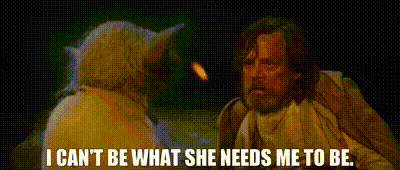Cordelia:
Buffy. You're really campaigning for bitch-of-the-year, aren't you?
Buffy:
As defending champion, you nervous?
Cordelia:
Whatever is causing the Joan Collins 'tude, deal with it.
Embrace the pain, spank your inner moppet, whatever, but get over it.
'Cause pretty soon you're not even gonna have the loser friends you've got now.

“Gary tells me one day about his sister, how her son, his nephew, died at eighteen from overdosing on a bad batch of MDMA. ‘Would you talk to her?’ he asks.
I see him every day over the course of the production and it is, all in all, a fairly typical experience.
I return to my trailer, content to be wrapping a film without having caused any unnecessary aggravation. Aside from the ice creams.
Gary taps on the door.
When I open it he already has his sister on the line.
I take the phone and close the door and the always slightly absurd ambience of the on-set trailer, in spite of my daft costume, immediately becomes calm and sacred.
Kerry tells me that she is in Brent Cross shopping centre.
‘Excuse me,’ she says, and moves somewhere quiet.
I sit down and picture her there.
I breathe and prepare for her story.
She is tentative and tearful for a few syllables, but propelled by tremulous certainty.
‘James was a beautiful boy.
More than my son he was my friend.
So clever and sensitive.
Not a druggy kid.
He didn’t do drugs a lot, I know he didn’t.
I didn’t want him to go out that night.
I wanted him to stay in.
I wish I’d stopped him. I couldn’t sleep, I kept looking at my phone.
I had a bad feeling.
At one fifty-eight I got a text, “I’m all right, Mum”, at two fifty-eight I got another one from his phone saying “James is dead.”’
At this point the frequency, the intensity, the sharpness of tone changes, the grief is piercing and I try to fall backwards into purpose.
‘My boy died on the street, Russell, on a pavement with three hundred people watching. Outside a club. He was dead by the time he got to the hospital.’
I try to breathe and reach beyond my own lack of experience, my own inability to know something so profound and painful and source something useful.
‘I’m getting grief counselling and they say I have to let go because the grief is going into my body and making me ill but I don’t want to let go because I deserve it.’
Then the terrible sound of a mother’s pain.
I am not qualified to handle a mother’s grief.
I have no training in counselling or experience of this poignant and unanswerable despair.
In this moment, though, I am on the phone to a grieving mother and the practical and rational limitations simply cannot be allowed to prevent me giving her the comfort and love her situation demands.
William Blake did a series of engravings based on the Book of Job, rendering in immaculate tableaux Job’s trials and suffering. It is as if Blake through his art and the Bible through the means of prose refer to the same subliminal truth, as if this story, the Book of Job, contains essential truths that we can only behold fleetingly and through the lens of image or language.
In one tableau, Yaweh, or God, from on high shows Job ‘the behemoth and the leviathan that I made, as I made thee’. These creatures as rendered by Blake are dreadful and uncanny. The dumb, muscular, skinless beast, all sinew and mouth. The deep-dwelling sea serpent ever present but invisible in its awful depths.
When regarding these silently screaming images the horror of God’s power is awesome, more terrifying though is the suggestion of ambivalence and that implicitly God The Creator is Not Only Good.
In these images Job and Yaweh look the same, as if both the man made of flesh and the divine father are enshrined within a single form.
These hypnotic tableaux induce a visionary state where we confront that God is within us and our own moral choices determine God’s values. That the capacity for Darkness and unconsciousness is as much part of the individual’s psychological make-up as the inclination to love and kindness.
That we HAVE to be Good, because if WE are not Good, then God is not Good, that God’s Grace is realized through us and if we do not realize it then it does not exist.
Like a terrible quantum equation where our intentions create all that is manifest. Do not be lost in the leviathan deep. Do not be trapped in the dumb carnality of form, transcend; transcend that God may imbue The World with His Grace through you.
Knowing my own limitations I do not answer from myself.
Knowing the hopelessness of such pitiless despair I do not attempt to placate with platitudes.
I offer Love.
I offer this stranger, this woman that I am confronted with, The Best of Me, such as it is, in the hope that within me, within her, within us all, is the capacity to heal and be healed.
There is no code in language, no silver bullet that can undo this pain but beyond language, beyond form, beyond death there is, there must be, connection.
We cannot allow the universe to be unconsciousness and carnality, because we have the choice, because the possibility, the potentiality for love exists in all of us. Its existence as potential is also its demand for realization.
Aside from the love, comfort and forgiveness that anyone would offer a grieving mother I suggest that Kerry meets two of the mentors in this book, Manya and Meredith – healers, mothers, strong women who will be able to hold her pain for her until she is able to.”
Excerpt From
“Mentors,” by Russell Brand,
No comments:
Post a Comment